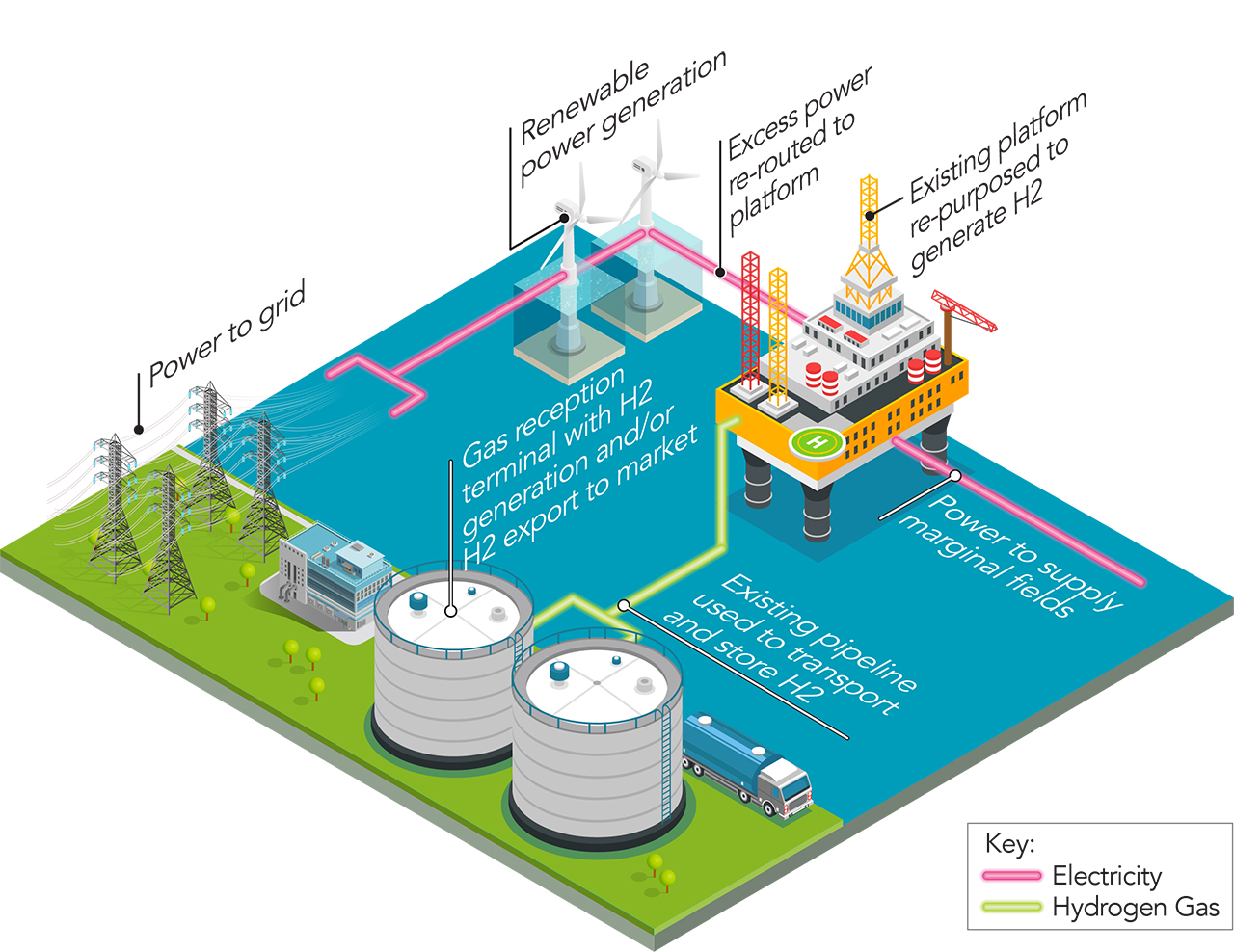
Decarbonising the UK’s energy market using hydrogen
Understanding the opportunities available for delivering cleaner energy with hydrogen within offshore oil and gas.
- Service 1
The Oil and Gas Technology Centre
- Service 1
Future shaping and strategic consultancy
- Service 1
2018
Hydrogen is recognised as an important component in the decarbonisation of the UK’s energy market. One of the most abundant elements in the universe, hydrogen produces only heat and water when burned, meaning it can be used for a variety of purposes, including power and heat provision for industry and households, and fuel for cars, buses and trains.

Looking to understand hydrogen use better, Costain worked with the Oil and Gas Technology Centre (OGTC) and environmental consultancy Aquatera, to understand the viability of hydrogen generation in the offshore environment as well as potential applications for hydrogen offshore.
Our experts undertook a scoping study to investigate opportunities for hydrogen within the off-shore oil and gas sector. The study identified three scenarios as being worthy of more detailed evaluation.
- Small pools power optimisation
This scenario reviewed the feasibility of using hydrogen to power the equipment required to process and transport small amounts of oil and gas currently trapped in developments which are considered not economically viable - Hydrogen as an alternative energy export and enabler of enhanced oil recovery (EOR)
This option looked at large scale offshore production of hydrogen, which could be transported back to shore or used to generate power for off-shore use. The CO2 created in the production of the hydrogen would be injected into depleting oil and gas fields to increase the pressure and allow more product to be recovered. - Replacing wires with pipelines
This option would involve producing hydrogen using renewable power (such as spare capacity from offshore wind farms) then transporting it to shore via pipeline.
The study marked the beginning of the process to develop industry understanding of how hydrogen and offshore oil and gas can co-exist in the future.
Contact and social
Energy
